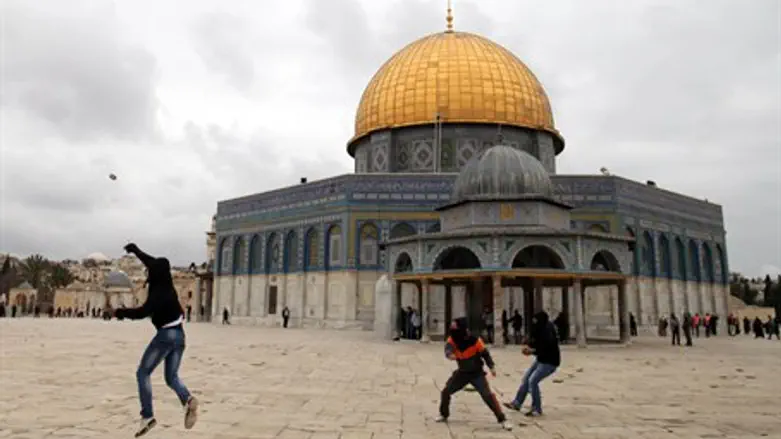
Jordan has decided not to install security cameras on the Temple Mount in Jerusalem because fierce Palestinian resistance turned the project into a "source of conflict," Prime Minister Abdullah Nsur said Monday.
"We have been surprised by the reactions of some (Palestinians) who have made comments expressing their doubts about the aims of the project," the official Petra news agency quoted Nsur as saying.
Investigative report Pinhas Inbari just last week revealed to Arutz Sheva that the relatively unknown Islamist group Tahrir is in fact in control of the Temple Mount, and he revealed that members of the group have chased away Jordanian representatives who came to install the cameras. It would appear that fear of Tahrir thwarted Jordan's plans.
On March 20, Jordan said it would set up 55 security cameras around the flashpoint compound to monitor any Israeli "violations." Prime Minister Binyamin Netanyahu originally said the plan was to monitor violent terror-funded Arab rioters, although Jordan said it would have sole access to the footage.
Despite being liberated in the 1967 Six Day War the Temple Mount, the holiest site in Judaism, remains under the de facto rule of the Jordanian Waqf, which bans Jewish prayer on the site in a discriminatory demand Israeli police have kowtowed before.
In October, US Secretary of State John Kerry endorsed a plan for cameras at the site in a bid to calm repeated disturbances, after meeting Jordan's King Abdullah II and Palestinian Authority (PA) Chairman Mahmoud Abbas. Netanyahu agreed to the scheme, with senior members of his Cabinet including Jewish Home chairperson Naftali Bennett getting behind the idea.
On Monday, Nsur said, "because we respect the point of view of the Palestinians...we believe the project is no longer consensual, but a potential source of conflict, and have decided to end it."
He said Amman's main objective had been to install surveillance cameras "at the compound, not inside the mosques, to document repeated Israeli aggressions at the holy places." Israeli leaders originally backed the project to document how Arab rioters stored firebombs and rocks inside Al-Aqsa Mosque in preparation before attacking police.
AFP contributed to this report.